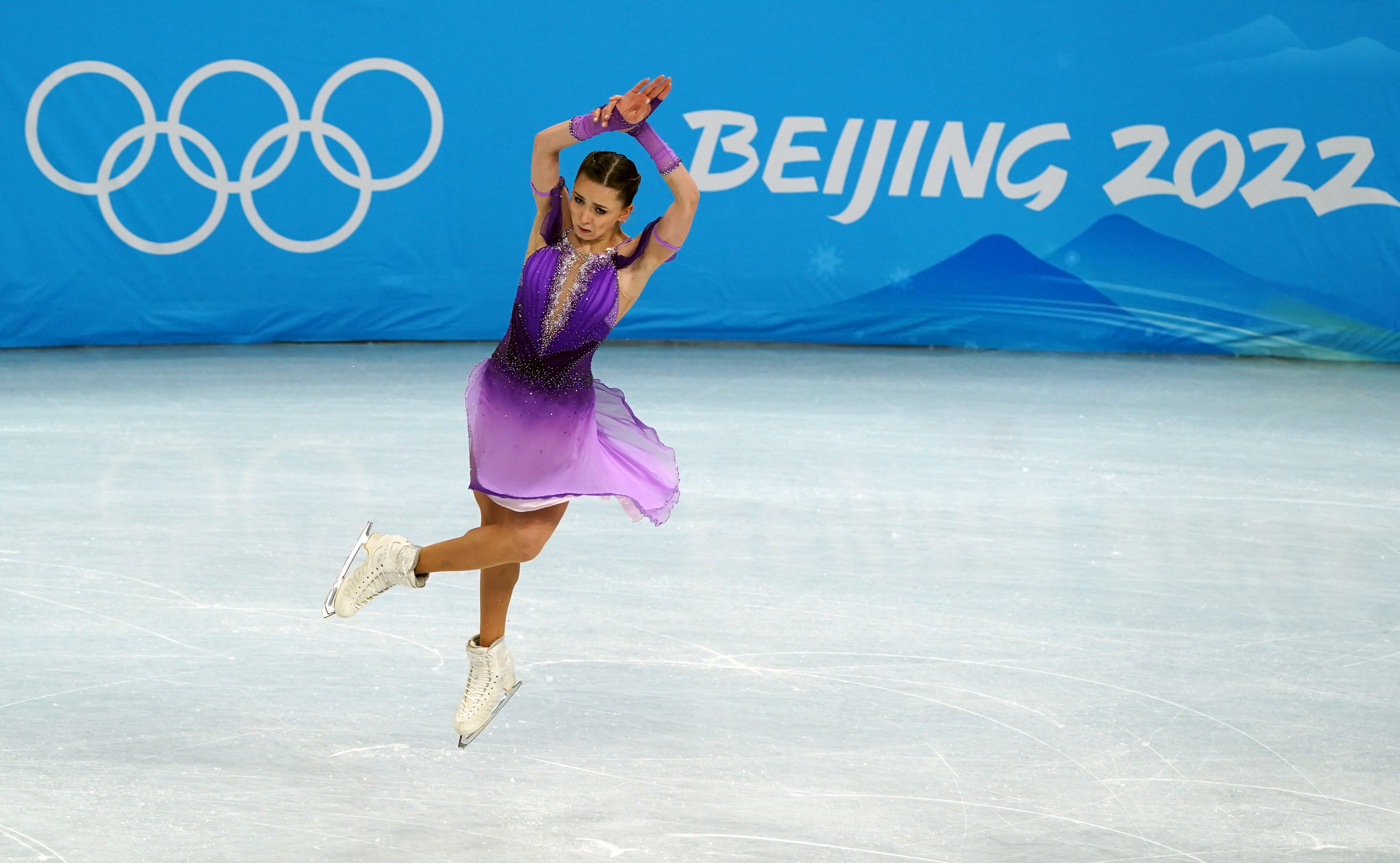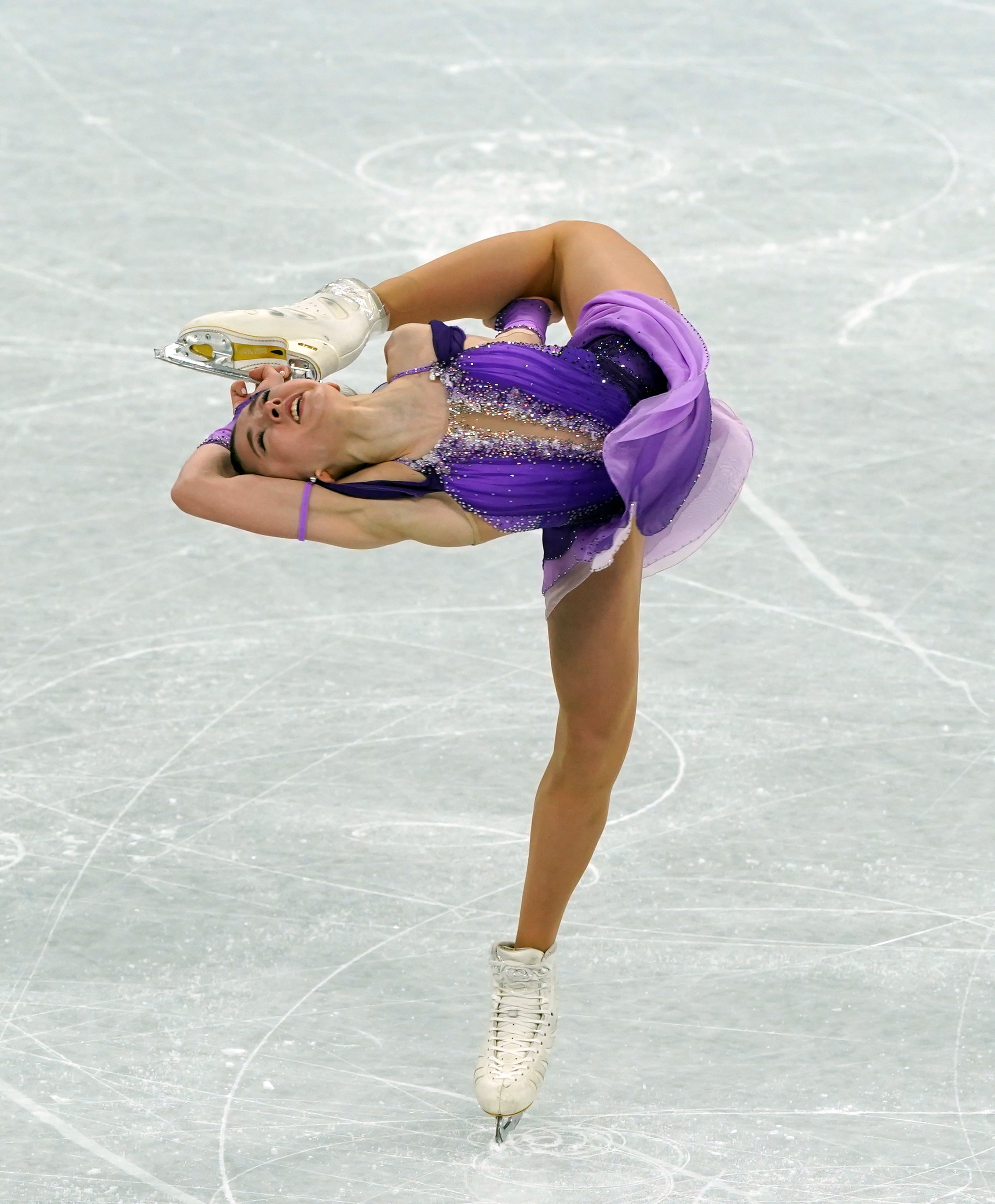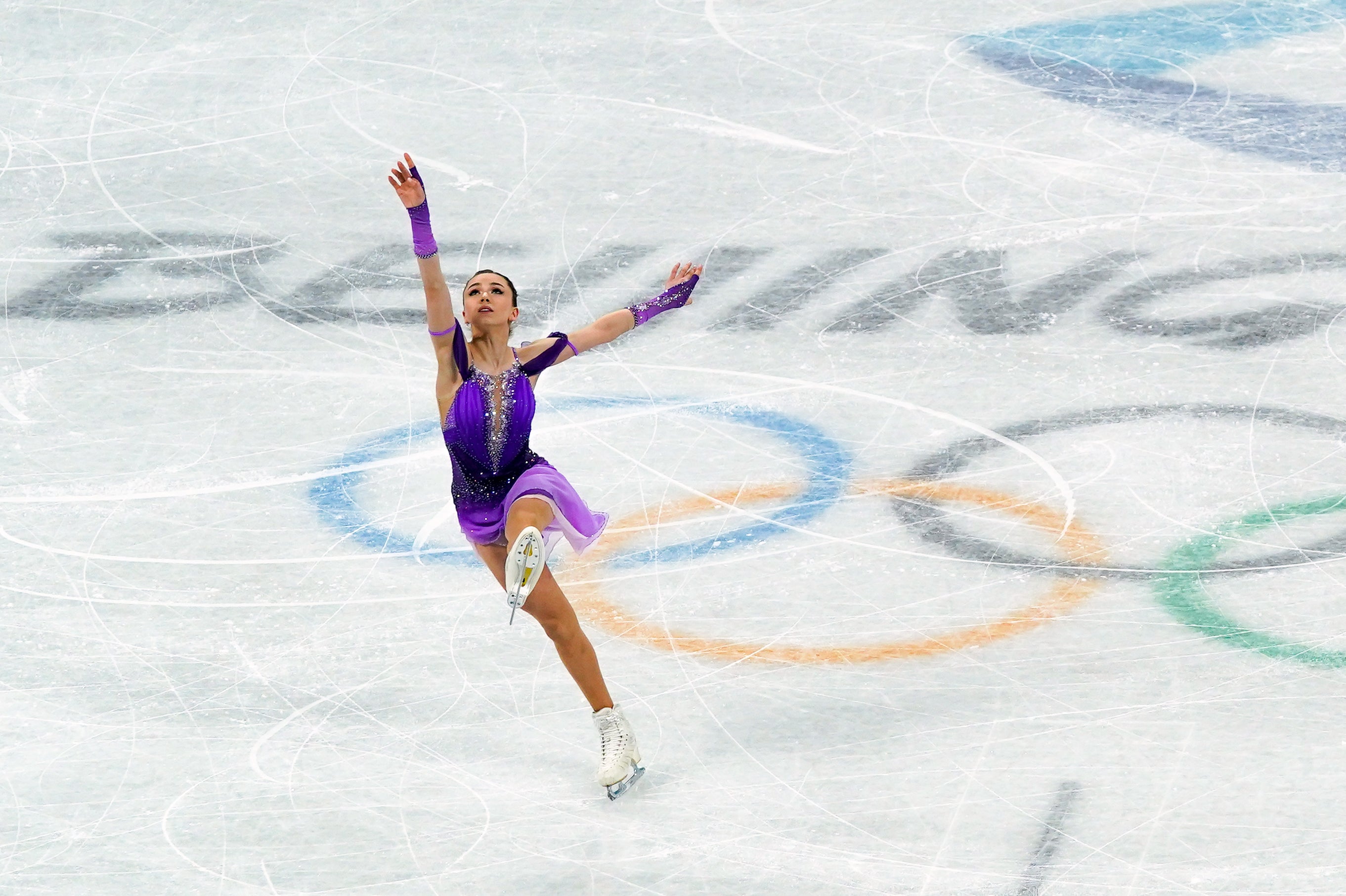Kamila Valieva: Russian 15-year-old figure skater may face Winter Olympics ban after failing drugs test
Kamila Valieva is still scheduled to compete in next week’s women’s singles competition despite testing positive for a banned heart medication in the lead-up to the Games

Your support helps us to tell the story
From reproductive rights to climate change to Big Tech, The Independent is on the ground when the story is developing. Whether it's investigating the financials of Elon Musk's pro-Trump PAC or producing our latest documentary, 'The A Word', which shines a light on the American women fighting for reproductive rights, we know how important it is to parse out the facts from the messaging.
At such a critical moment in US history, we need reporters on the ground. Your donation allows us to keep sending journalists to speak to both sides of the story.
The Independent is trusted by Americans across the entire political spectrum. And unlike many other quality news outlets, we choose not to lock Americans out of our reporting and analysis with paywalls. We believe quality journalism should be available to everyone, paid for by those who can afford it.
Your support makes all the difference.Fifteen-year-old Russian figure skater Kamila Valieva faces being thrown out of the Winter Olympics after the International Testing Agency confirmed she tested positive for a banned heart medication in December.
Valieva’s positive test was confirmed on Tuesday, one day after she starred in the Russian Olympic Committee’s victory in the team event in Beijing Her team successfully challenged a provisional suspension, and she was practising again on Friday when the ITA ended days of speculation.
The ITA and the International Olympic Committee are now challenging the lifting of the provisional suspension, with a view to determining Valieva’s continued participation in the Games. She is the overwhelming favourite to win the women’s individual competition, which starts on Tuesday.
Valieva’s situation is complicated by a World Anti-Doping Agency (Wada) ruling which considers those under 16 ‘protected persons’, meaning the usual rule of strict liability does not necessarily apply, and generally implying the athlete concerned must remain anonymous.

However, the ITA effectively claimed it had been forced to issue its clarification due to the failure of the media to adhere to that same principle, following days of speculation that originally emanated from the delay in the awarding of medals for the team event.
Citing what it said it accepted was “the necessity for official information due to heightened public interest,” the ITA confirmed that Valieva submitted a positive sample for trimetazidine during the Russian National Championships in December.
Following confirmation of the positive test by a Wada-accredited laboratory in Stockholm last week, the ITA said it “immediately informed the athlete that the provisional suspension imposed on her by (Russian Anti-Doping Agency) Rusada is binding upon the IOC and the athlete is prevented from competing, training, coaching, or participating in any activity, during the Olympic Winter Games”.
However, Valieva successfully appealed to Rusada on the grounds of what the ITA said was a “reasoned decision” that is yet to be disclosed, thus allowing her to remain at the Games.
The ITA are leading an appeal on behalf of the IOC against the lifting of the provisional suspension, through the Court of Arbitration for Sport. Spokesman Mark Adams admitted it was crucial for a resolution “as quickly as possible” given Valieva’s scheduled participation next week.

The medals for the team event, during which Valieva became the first female figure skater to land quads in an Olympic Games and neared her own world record score, remain unrewarded.
The ITA said the decision on the result can only be made following analysis of the athlete’s B sample and what it said would be “a final decision on the full merits of the case”.
Trimetazidine, which increases blood flow to the heart, was added to the World Anti-Doping Agency’s list of prohibited substances in 2014. Chinese swimmer Sun Yang and Nigerian sprinter Blessing Okagbare are among those sanctioned for its use.
Russia was banned for state-sponsored doping in 2017, and since then athletes have had to compete as the Russian Olympic Committee. The Russian flag and Russian anthem are banned during the Beijing Games.